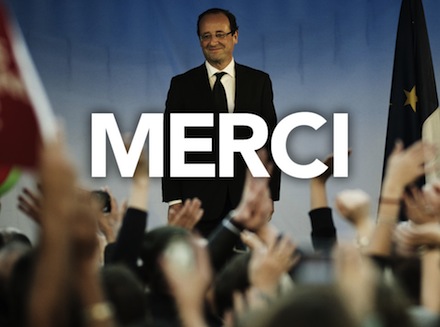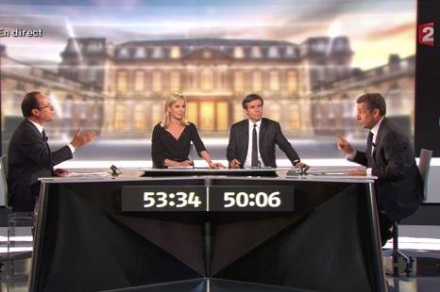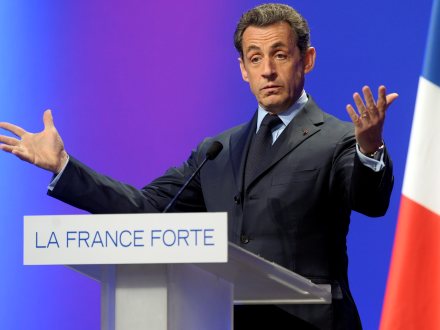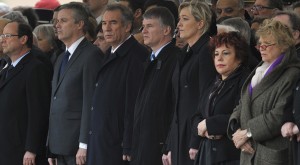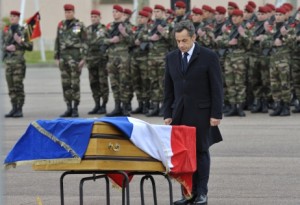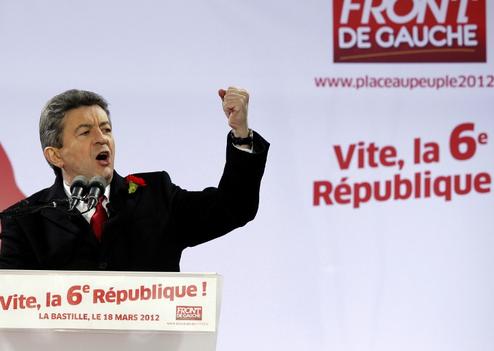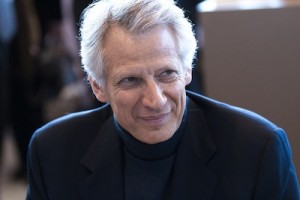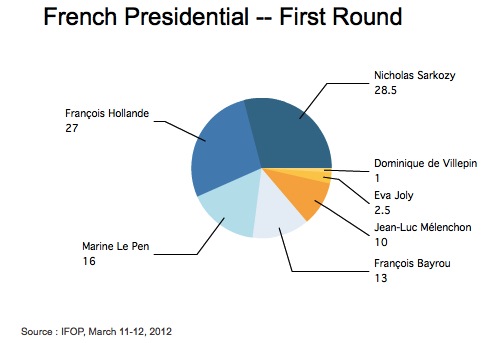
The revenge of Ségolène indeed.
Ségolène Royal, the 2007 presidential candidate of the Parti socialiste, joined François Hollande, the 2012 presidential candidate of the Parti socialiste at a campaign event in Nannes Wednesday night to rally left-leaning voters in France at a time when apathy — and a fierce radical left presidential challenge from Jean-Luc Mélenchon — threatens to erode Hollande’s first-round lead in the presidential race. 
Normally, it’s not incredibly advisable for a candidate, skirting along the cusp of victory, to invite last cycle’s loser to headline one of the largest pivotal rallies of the campaign — it’s sort of like Jimmy Carter inviting George McGovern to campaign for him in the 1976 U.S. general election.
But there, of course, is something fascinating and perhaps a little cathartic in watching the two — intraparty rivals, partners for over three decades and parents of four children — unite in such a public manner. Although their political differences aren’t nearly so wide as some in the PS, no other moment could symbolize the party’s unity in the 2012 election.
It is rumored that, should Hollande win in May and should the PS win legislative elections in June, Hollande will appoint Royal as President of the National Assembly.
Among especially those with the weakest political voices in the suburbs, Royal retains an aura of excitement that the more plodding Hollande can never match — she has been campaigning for Hollande especially hard in Marseille, for example. While the glamour has faded from Royal, who once looked to become France’s first female president — she finished embarrassingly low in the 2011 primary for the PS presidential nomination — there’s a glint yet of the magic and excitement that her 2007 candidacy once promised.
As Le Monde notes:
Et même s’il sort gagnant, il devra lutter contre cette suspicion de ne l’avoir été que par la virulence de l’anti-sarkozysme. Pour toutes ces raisons, il a besoin de retrouver un peu de la ferveur de 2007. [And even if Hollande wins, he will struggle against the suspicion of not really having won, but rather than the result of the virulence of anti-Sarkozyism. For all these reasons, he needs to regain some of the fervor of 2007.]
On the other hand, Hollande had better hope that the appearance with Royal — who lost the second round of the 2007 race to Nicolas Sarkozy by six points — does not make French voters see him as just the next in a long line of sacrificial lambs on the left in the past two decades to have watched nearly “certain” presidential campaigns end in disaster.
![]()
